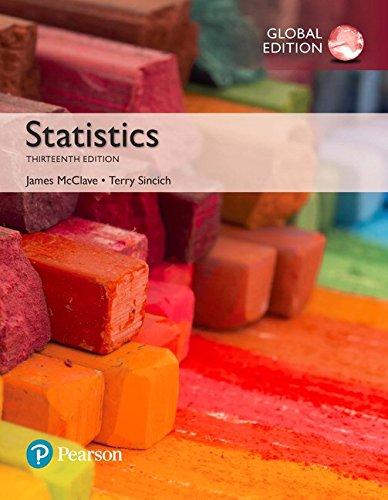How do you choose to argue? In Thinking and Reasoning (Apr. 2007), researchers at Columbia University conducted
Question:
How do you choose to argue? In Thinking and Reasoning
(Apr. 2007), researchers at Columbia University conducted a series of studies to assess the cognitive skills LO5 required for successful arguments. One study focused on whether one would choose to argue by weakening the opposing position or by strengthening the favored position. A sample of 52 graduate students in psychology was equally divided into two groups. Group 1 was presented with 10 items such that the argument always attempts to strengthens the favored position. Group 2 was presented with the same 10 items, but in this case the argument always attempts to weaken the nonfavored position. Each student then rated the 10 arguments on a five-point scale from very weak (1) to very strong (5). The variable of interest was the sum of the 10 item scores, called the total rating. Summary statistics for the data are shown in the accompanying table.
Use the methodology of this chapter to compare the mean total ratings for the two groups at a = .05. Give a practical interpretation of the results in the words of the problem.
Group 1 (support favored position)
Group 2 (weaken opposing position)
Sample size 26 26 Mean 28.6 24.9 Standard deviation 12.5 12.2
Step by Step Answer:






